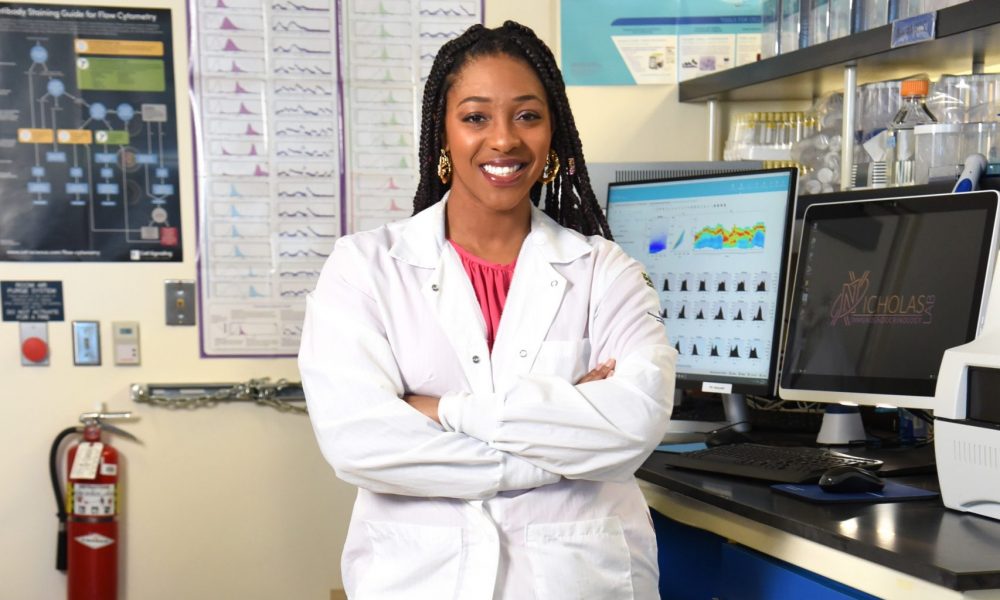

Today we’d like to introduce you to Dequina Nicholas.
Hi Dequina, so excited to have you on the platform. So, before we get into questions about your work life, maybe you can bring our readers up to speed on your story and how you got to where you are today.
Honestly, I didn’t know much about a career in research when I was in high school. I was very interested in forensic science, and I used to watch CSI, Bones, and NCIS. I even did a vocation paper on forensic science for my senior project. Because I wanted to do forensic science, I enrolled in undergrad as a chemistry major with an emphasis on biochemistry. As part of my honors program, I did some research in a chemistry lab but had no idea that research could be a career. Eventually when I started Graduate School, I was introduced to immunology even though I had entered a program for biochemistry. I really enjoyed the ability to work on problems related to human health, and I had already committed when I went to Graduate School that I was interested in researching type 2 diabetes because so many people in my family struggle with it. I realized that I had tons of research questions that I wanted to solve. I needed my own lab, my own team, and my own people. This became my plan A. There was no plan B. I wanted to be a research professor so I could find a cure for type 2 diabetes. The rest of my journey was all in pursuit of my getting a faculty position at a university where I would have the resources to do the research I envisioned. Along the way, I learned first-hand that not all labs and research environments are healthy. Some are even toxic. Further, I learned as a first-generation child of immigrants that I had no clue what I was doing. I was blessed to have mentors and supporters go out of their way to teach me how to reach my goal and achieve my dreams. It was these experiences that shaped my entire approach to how I do science. I have now established a lab where I focus on the careers of my students and trainees. In doing so, they do excellent science and move us closer to a cure for type 2 diabetes and also polycystic ovary syndrome, another disease my lab studies. I operate this way because I realize that my grit and determination weren’t enough to land me a position at UCI. It also took advocates and mentors to ensure that I was the best candidate for the position and making sure that I received a fair chance.
I’m sure it wasn’t obstacle-free, but would you say the journey has been fairly smooth so far?
Becoming an Assistant professor has definitely not been a smooth road. Some of the biggest struggles along the way was just being broke. In an academic career, it is important to pursue opportunity wherever it may take you. Moving cross country is expensive and I have had to move multiple times in my career. From Florida to California to Massachusetts and back to California. One of the hardest times was when I was training in type 2 diabetes research at Boston University. The pay isn’t great, and the city is expensive, a situation that many people know. For two years, to make ends meet, I worked 3 additional freelance editing jobs while working in a demanding research position. Even with the additional income, my budget was extremely tight. I did my laundry by hand in the bathtub. I only cooked at home and rationed food. I ate so much more pasta than I would like to admit and really couldn’t afford fresh fruits and vegetables. I told myself the job and situation was temporary and will allow me to advance my career. And it did. My other struggles happened when I had my first child. Juggling a professional career as a mom during a pandemic was extremely difficult. I had a baby months before starting my current job at the University of California Irvine. Because I did not want to miss out on important opportunies, that baby came almost everywhere with me. It was a logistical nightmare to figure out childcare just to have the same opportunities as my colleagues. Now, with my lab established, the challenges are different. Now the challenge is supporting a team of researchers that I have the responsibility of raising funds for to ensure that everyone is paid. I think no matter what career we choose, there will always be challenges. In my current position, I embrace the challenge because I am on a mission to make change in the world through our research.
Thanks – so, what else should our readers know about your work and what you’re currently focused on?
I’m an Assistant Professor at the University of California Irvine. I teach biology courses to undergraduates and graduate students while operating a research lab that studies the endocrine diseases type 2 diabetes and polycystic ovary syndrome. My research program is taking a different approach to have we study and try to develop cures for endocrine disease. For us, we are immunologists who desire to understand how the immune system and inflammation cause disease. We have the ultimate goal of using our research to design anti-inflammatory treatments for both type 2 diabetes and polycystic ovary syndrome. My research program is relatively new, established in July 2021. What I am most proud of is the fact that while building this research program I have stayed true to my values and have been highly successful while doing so. My lab has a motto: “Happy People Do Great Science.” I believe in investing in the team members that work, train, and study in my lab. By investing in my team, I have recruited a diverse team from different racial, economic, and religious backgrounds that all work together in harmony on a common goal of curing endocrine disease. The diversity in my lab is not only impressive, but it is uncommon and spans beyond the diversity that you can simply see. We have a range of work styles, expertise, and experience that allows our research team to conduct interdisciplinary science in a way that would be impossible without such a diverse group. My young lab is thriving as we pursue “doing science differently.” How our lab operates is not the norm, but I am on a mission to show that my model, putting people first and the science second, is not only a feasible way to operate a research lab, but is the best way. By focusing on the success of my team members, I have created an inclusive environment the pays back dividends in research productivity. My team is productive because they are happy, they are invested in the lab mission, and the lab culture provides a place for everyone to thrive.
We love surprises, fun facts, and unexpected stories. Is there something you can share that might surprise us?
I’m a scientist but have many secret skills that when people find out they are surprised. I used to do beauty pageants, and was part of a bachata dance team, and for a while was an acrobat that performed NBA half time shows.
Contact Info:
- Website: nicholaslab.bio.uci.edu
- Instagram: https://www.instagram.com/nicholaslab/
- Linkedin: https://www.linkedin.com/in/dequina-nicholas/
- Twitter: https://twitter.com/QuinaScience
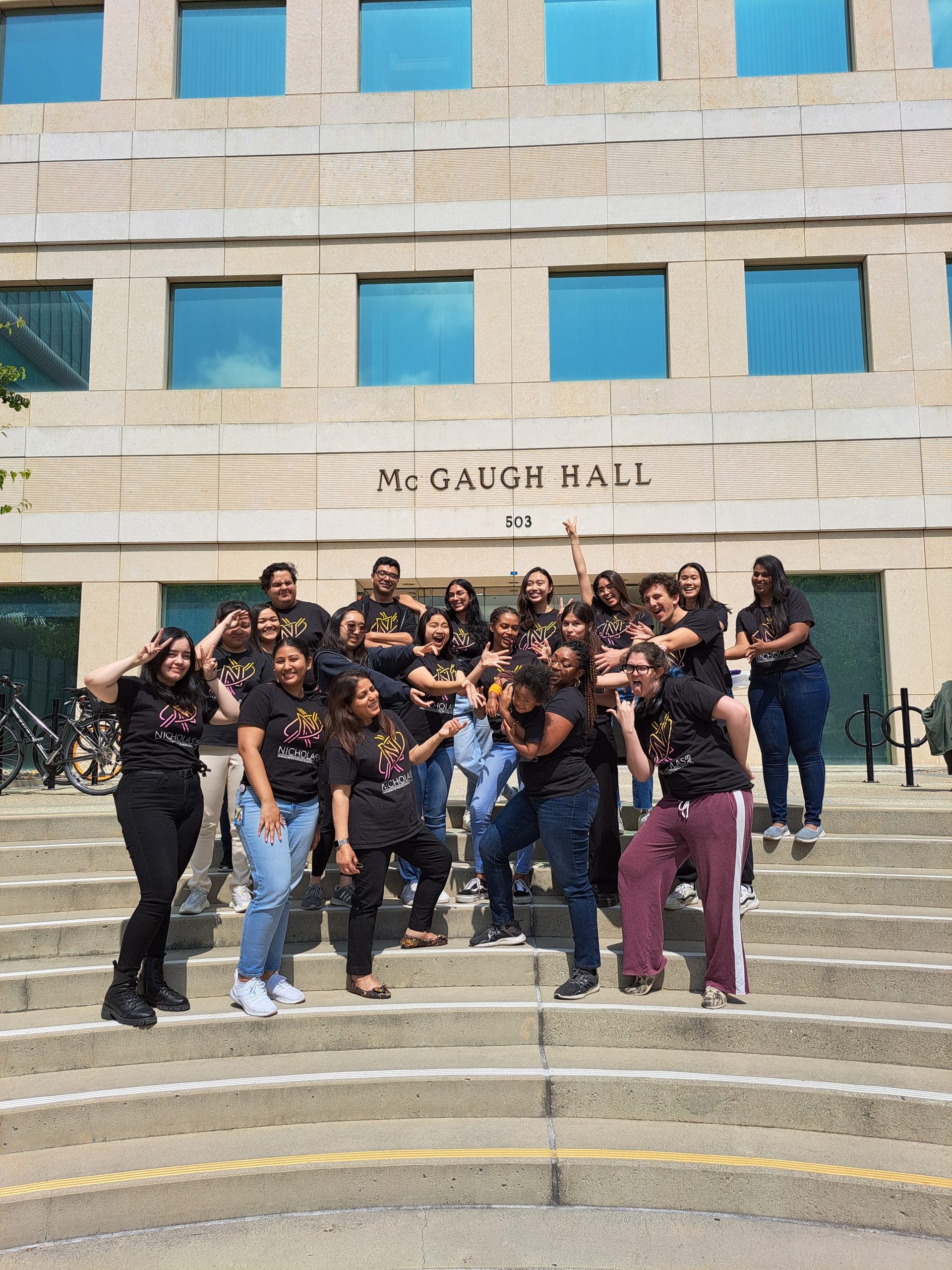
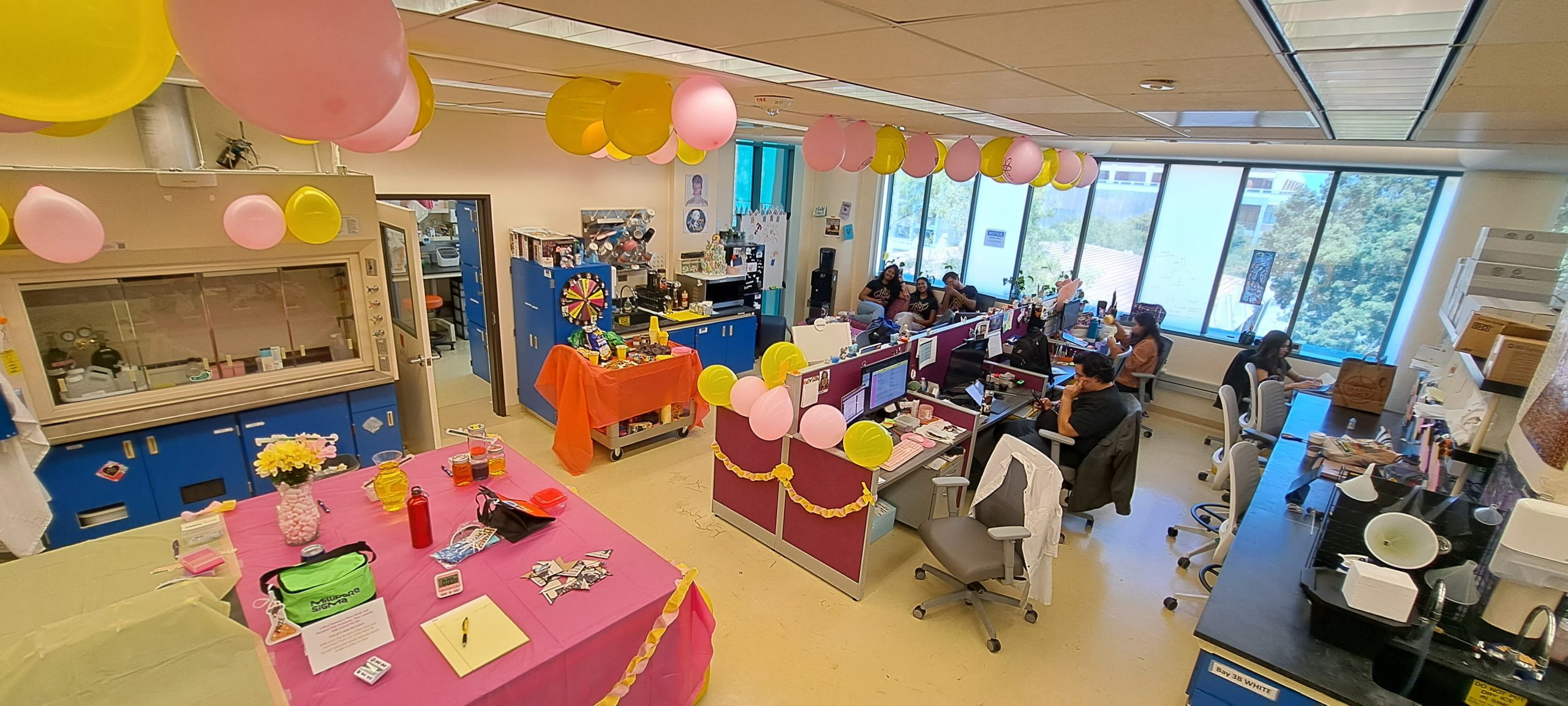
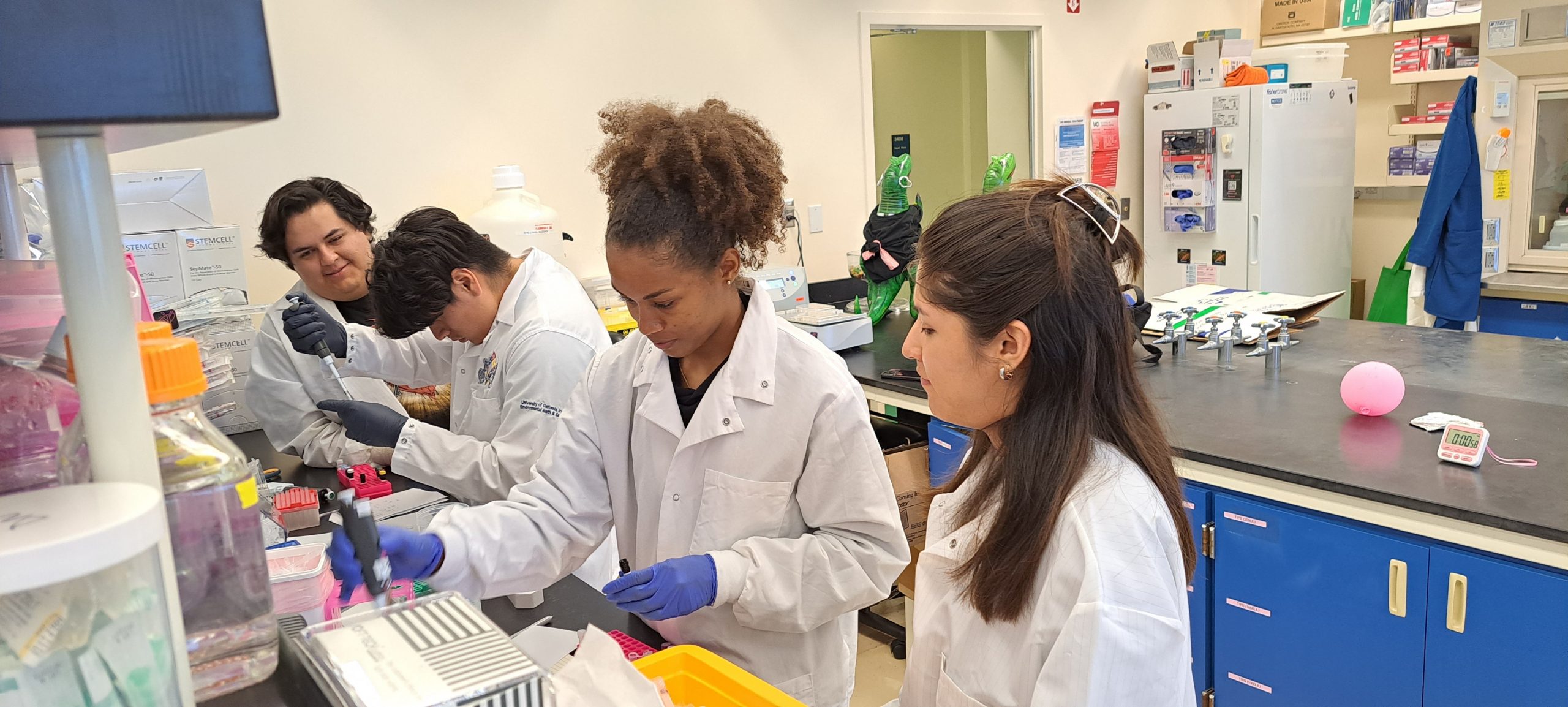
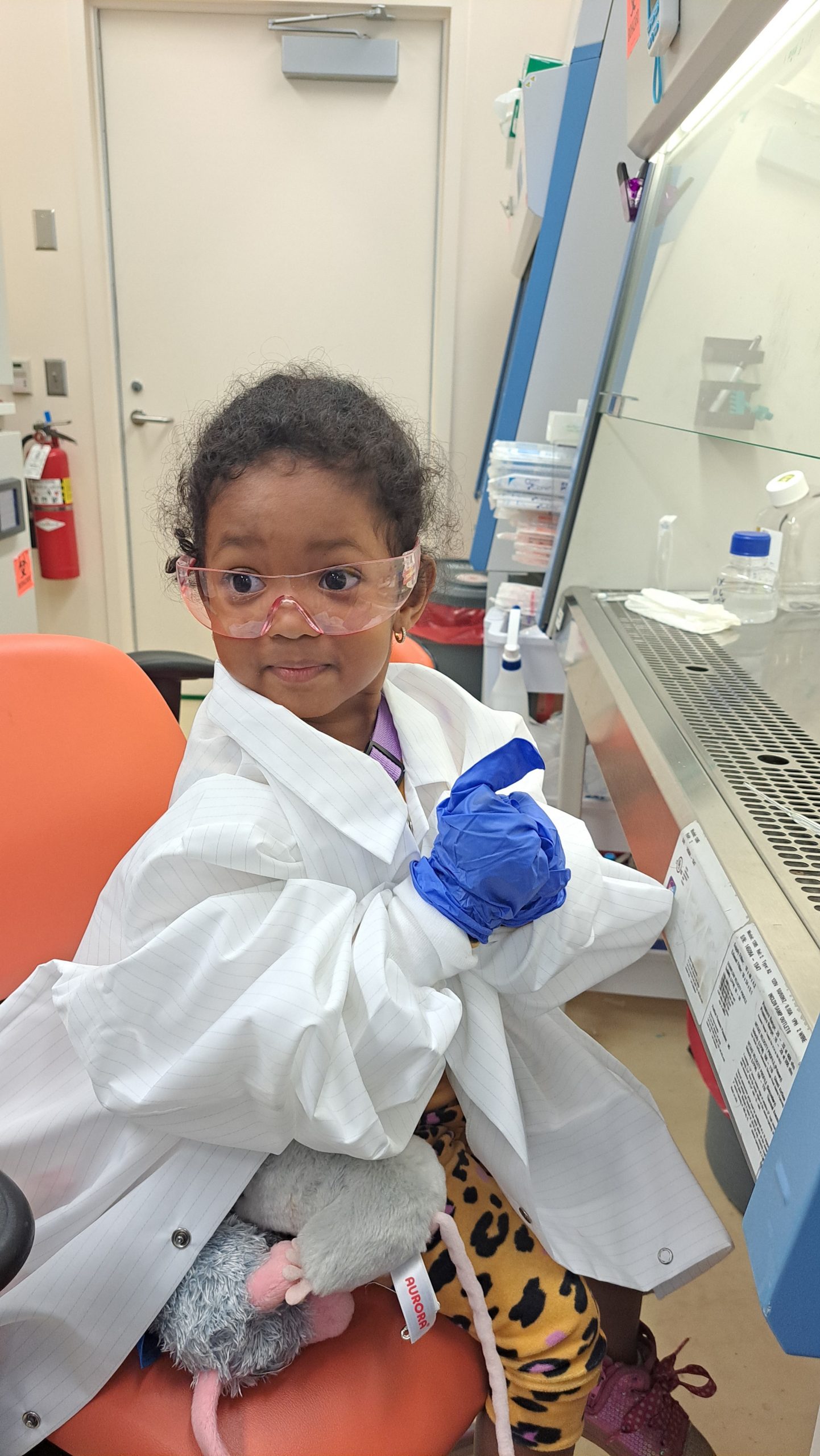
Image Credits
UCI School of Biological Sciences











